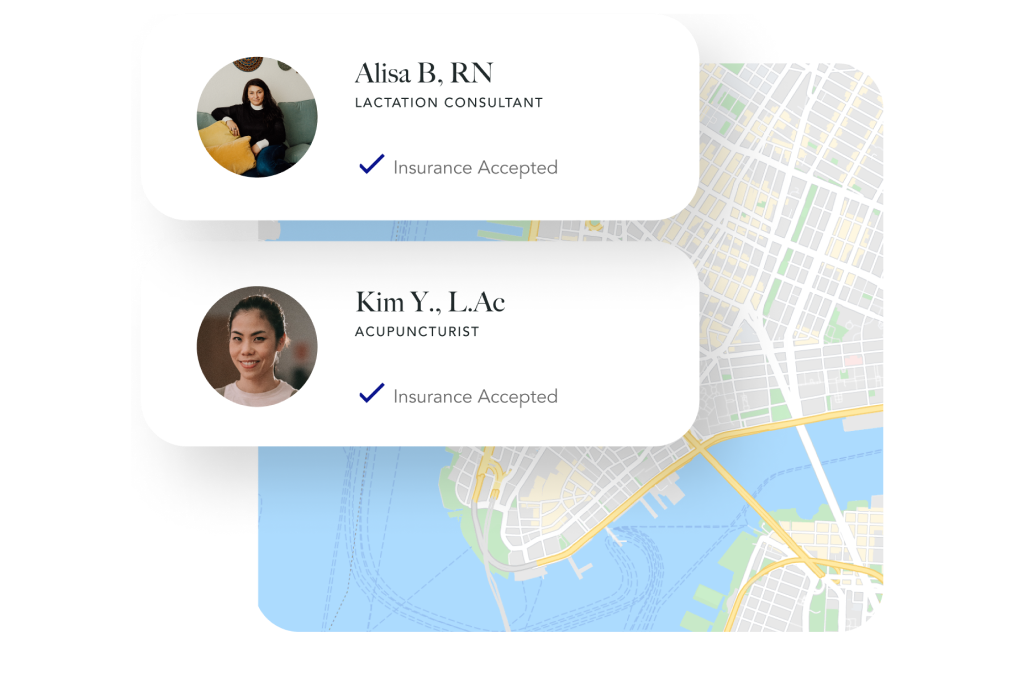
Our Specialties
Find Cardiac Nutritionists Near Me
90% of Zaya patients pay $0 for one-on-one nutrition counseling with a registered dietitian.
Find A Cardiac Nutritionist Near MeBrowse our directory of cardiac nutritionists — and book your visit online using your insurance.

Find the right care for you.

Pay with your insurance.

Book your visit online.
Get a provider who gets you.
Our providers are nutrition experts and take the time to get to know you and your needs.
Real talk from real patients.
Have questions? We’ve got answers.
For more information about how Zaya works, check out our frequently asked questions.
View FAQsMore about heart health & our cardiac nutritionists
What is heart health?
Heart health is all about making healthy choices each and every day to lower your risk of developing heart-related illnesses. These illnesses can include heart disease and coronary heart disease. By taking preventive measures, you an lessen your risks of developing these illnesses which can cause a heart attack.
The heart, which beats about 2.5 billion times throughout an average lifetime, plays a vital role in pumping oxygen-rich blood and essential nutrients to all parts of the body.
This continuous circulation ensures proper function while removing waste products. Disruptions or diseases affecting the heart can lead to serious consequences including the failure of essential bodily functions.
To promote heart health, make sure you exercise three to four times a week and consume a balanced diet rich in fruits, vegetables, and whole grains. Stay away from cigarettes and tobacco products too, which can increase the formation of plaque in blood vessels. Drinking alcohol in moderation is also suggested.
Managing stress levels and maintaining a healthy weight are also essential components of maintaining heart health. Regular check-ups and screenings with healthcare professionals can help monitor heart health and detect any potential issues early on.
What causes heart health issues?
Heart health issues can be caused by various factors, including lifestyle choices and underlying medical conditions. While some causes may be well-known, there are also surprising contributors to heart problems. Here are some common causes of heart health issues:
- High blood pressure
- High cholesterol levels
- Smoking and tobacco use
- Sedentary lifestyle with lack of regular physical activity
- Unhealthy diet high in saturated and trans fats, salt, and sugar
- Excessive alcohol consumption
- Obesity and overweight
- Diabetes and insulin resistance
- Stress and chronic mental health conditions
- Sleep apnea and other sleep disorders
- Family history of heart disease
- Age, with the risk increasing as one gets older
- Gender, as men are at higher risk than premenopausal women
- Certain medical conditions such as autoimmune disorders, chronic kidney disease, and HIV/AIDS
- Environmental factors like air pollution and exposure to secondhand smoke
What are the symptoms of cardiac problems?
Recognizing the symptoms of cardiac problems is crucial for early detection and timely intervention. While symptoms can vary, there are several common signs that may indicate the presence of heart disease. Here are some key symptoms to be aware of:
- Chest pain or discomfort, often described as pressure, tightness, or a squeezing sensation
- Shortness of breath or difficulty breathing, especially during physical exertion or when lying flat
- Fatigue or weakness, feeling unusually tired even with minimal activity
- Rapid or irregular heartbeat, palpitations, or the sensation of the heart “fluttering”
- Dizziness or lightheadedness, particularly when standing up or exerting oneself
- Swelling in the legs, ankles, feet, or abdomen, indicating fluid retention
- Persistent cough, especially if accompanied by pink or white frothy sputum
- Nausea, indigestion, or discomfort in the upper abdomen
- Pain, numbness, or tingling in the arms, shoulders, neck, jaw, or back
- Unexplained weight gain or loss
- Cold sweats, clammy skin, or a pale complexion
What are the risks of cardiac problems?
When cardiac problems are left untreated, they can pose significant risks to a person’s health and well-being. Failure to address heart disease can lead to various complications and potentially life-threatening situations. Some of the risks associated with untreated cardiac problems include:
- Severe angina. Untreated heart disease can result in recurring episodes of severe chest pain or angina, which can significantly impact an individual’s quality of life.
- Heart failure. Without proper treatment, heart disease can progress to heart failure, where the heart becomes weakened and is unable to pump blood effectively. This can lead to symptoms such as shortness of breath, fatigue, fluid retention, and reduced ability to perform physical activities.
- Increased risk of death. Untreated cardiac problems elevate the risk of fatal outcomes, including heart attack, sudden cardiac arrest, or other cardiovascular complications.
- Worsening symptoms. Over time, cardiac problems left untreated can lead to the worsening of symptoms, causing increased discomfort, decreased exercise tolerance, and reduced overall cardiac function.
- Complications and comorbidities. Untreated heart disease can contribute to the development of other health conditions, such as arrhythmias, blood clots, stroke, kidney problems, and damage to other organs.
When to see a cardiac nutritionist
When it comes to managing cardiac health, working with a cardiac nutritionist can provide valuable support and guidance. These specialized professionals have in-depth knowledge of nutrition’s impact on heart health and can help individuals make informed dietary choices to promote cardiovascular wellness. Whether you have a known heart condition or are looking to improve your overall heart health, considering the assistance of a cardiac nutritionist can be beneficial.
You should consider working with a cardiac nutritionist if you:
- Have been diagnosed with a cardiovascular condition. A cardiac nutritionist can tailor a dietary plan specific to your condition, taking into account factors such as high blood pressure, high cholesterol, heart failure, or other cardiac issues.
- Need help managing risk factors. If you have risk factors for heart disease, such as obesity, diabetes, or a family history of cardiovascular problems, a cardiac nutritionist can guide you in adopting heart-healthy eating habits to reduce these risks.
- Want to improve your overall heart health. Even without a diagnosed condition, a cardiac nutritionist can provide valuable insights on nutrition and lifestyle choices that promote heart health, including maintaining a balanced diet, managing weight, and incorporating regular physical activity.
- Struggle with dietary modifications. If you find it challenging to make the necessary dietary changes on your own or have specific dietary restrictions due to medications or other health conditions, a cardiac nutritionist can offer practical solutions and support.
How Zaya Care’s cardiac nutritionists can help
When working with a cardiac nutritionist, individuals receive personalized support to improve heart health. In the first appointment, the nutritionist assesses medical history, diet, lifestyle, and cardiac conditions.
They will discuss goals, concerns, and preferences to develop an individualized nutrition plan tailored to the person’s specific needs. Follow-up appointments with a cardiac nutritionist involve ongoing monitoring, support, and adjustments to the nutrition plan as needed.
The nutritionist evaluates progress, provides meal planning guidance, and offers heart-healthy strategies for daily life, including managing cholesterol, blood pressure, and weight.
A cardiac nutritionist plays a vital role in educating and empowering individuals to make informed choices for their cardiovascular health. They provide recommendations, educate about heart-healthy eating, and offer tips and resources to support sustainable dietary changes.
By addressing specific dietary needs, managing weight, and promoting overall wellness, a cardiac nutritionist can contribute to the prevention and management of cardiac issues, helping individuals improve their heart health and enhance their quality of life.
Benefits of working with a Zaya Care cardiac nutritionist
Working with a Zaya Care cardiac nutritionist offers numerous benefits for individuals with cardiac issues. These specialized professionals understand the unique nutritional needs and challenges associated with cardiac health.
One of the key advantages of working with a Zaya Care cardiac nutritionist is their expertise in cardiac-related nutrition. They can offer advice on managing symptoms such as high cholesterol, high blood pressure, and weight management through dietary modifications and meal planning.
Zaya Care cardiac nutritionists provide ongoing support to individuals, helping them navigate their nutritional needs, optimize heart health, and develop strategies to improve overall cardiovascular well-being.
By working closely with their clients, these nutritionists empower them to make informed dietary choices and take control of their cardiac health.




